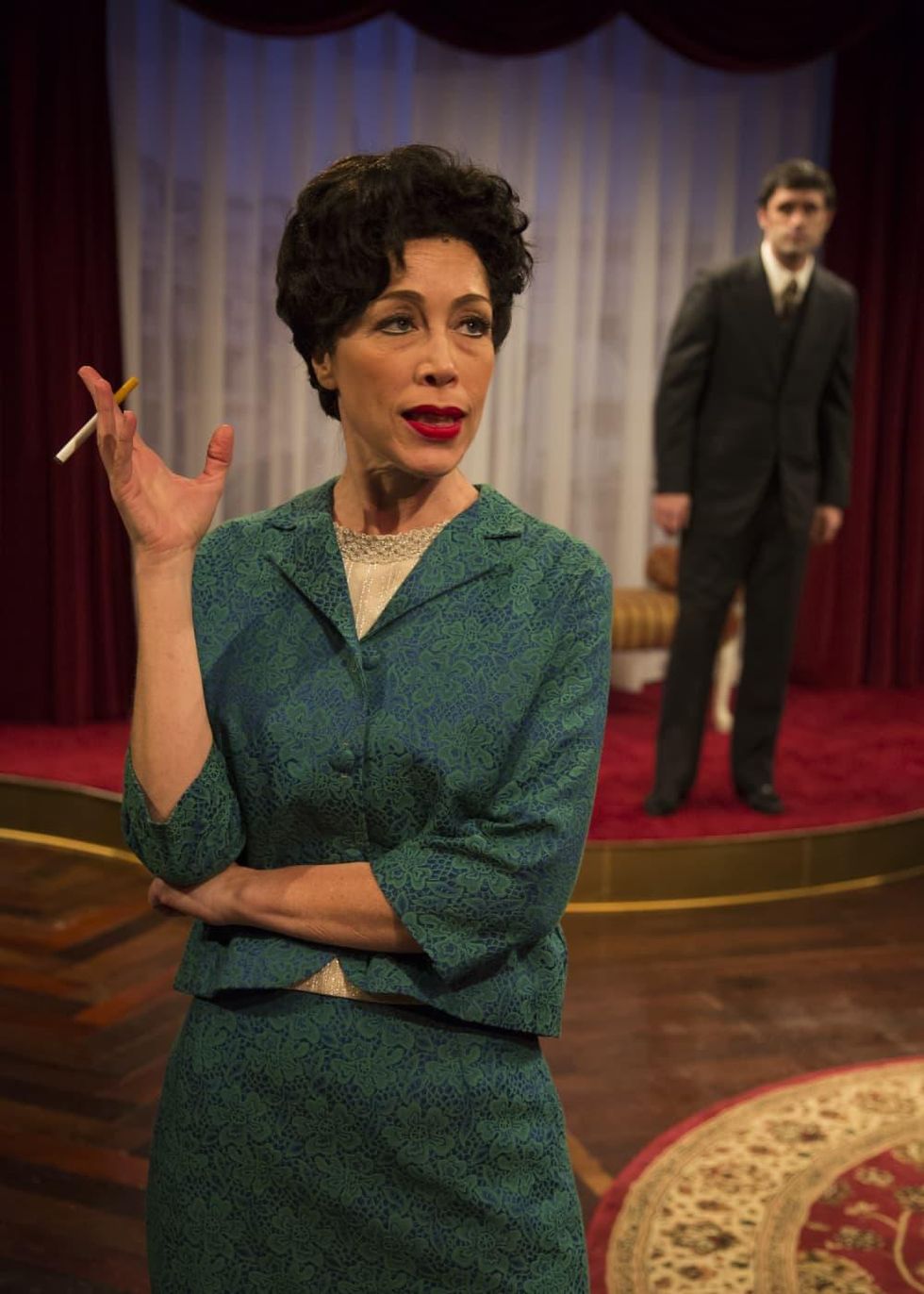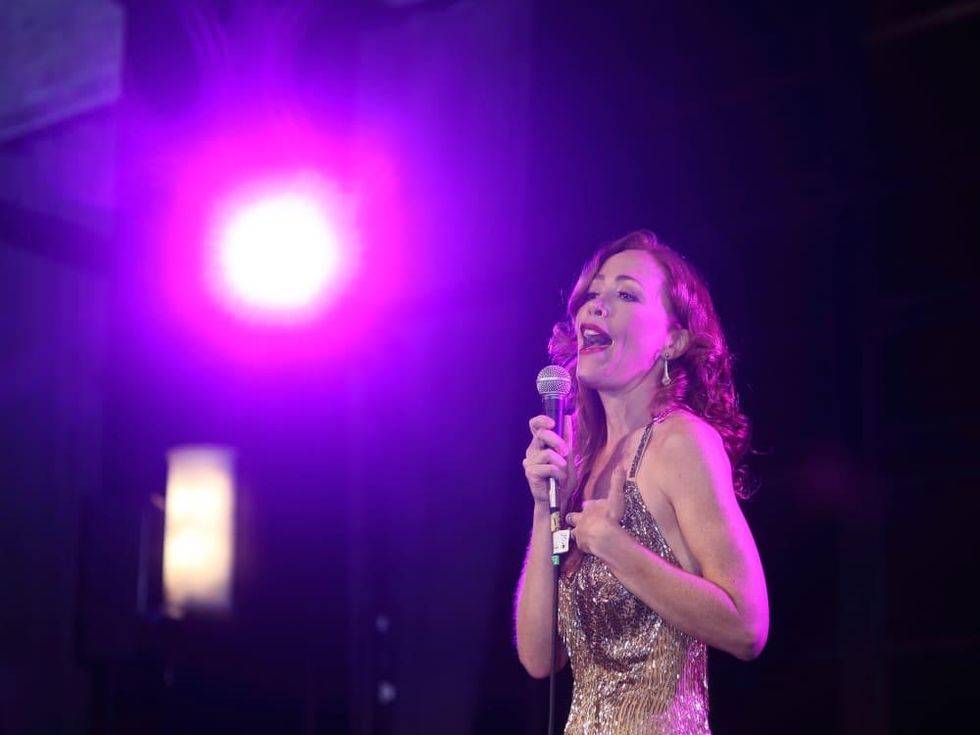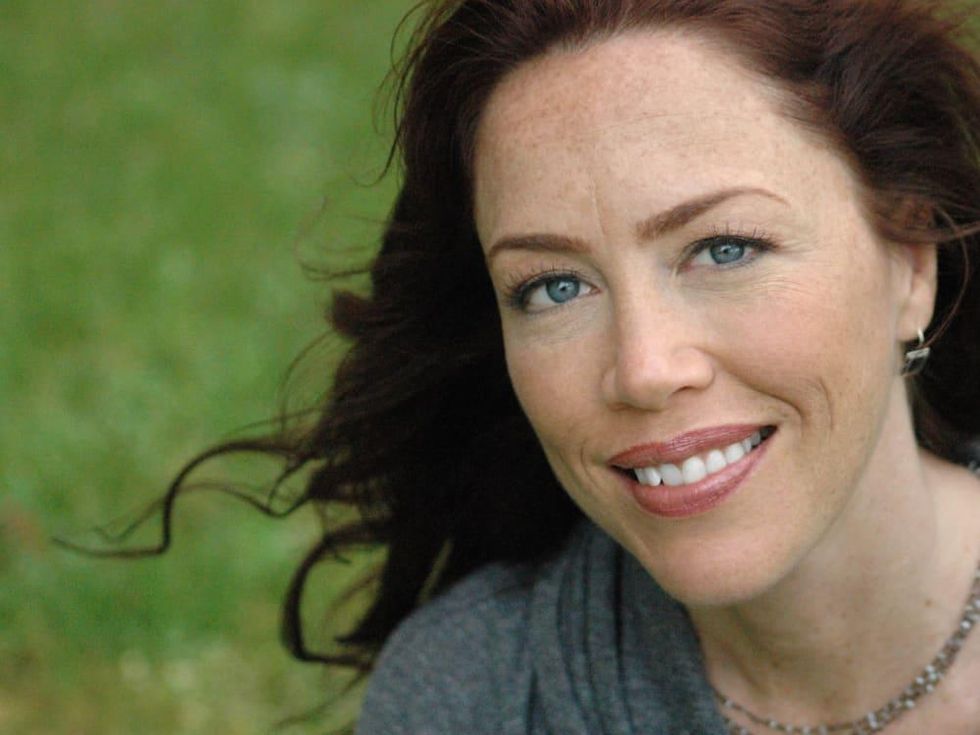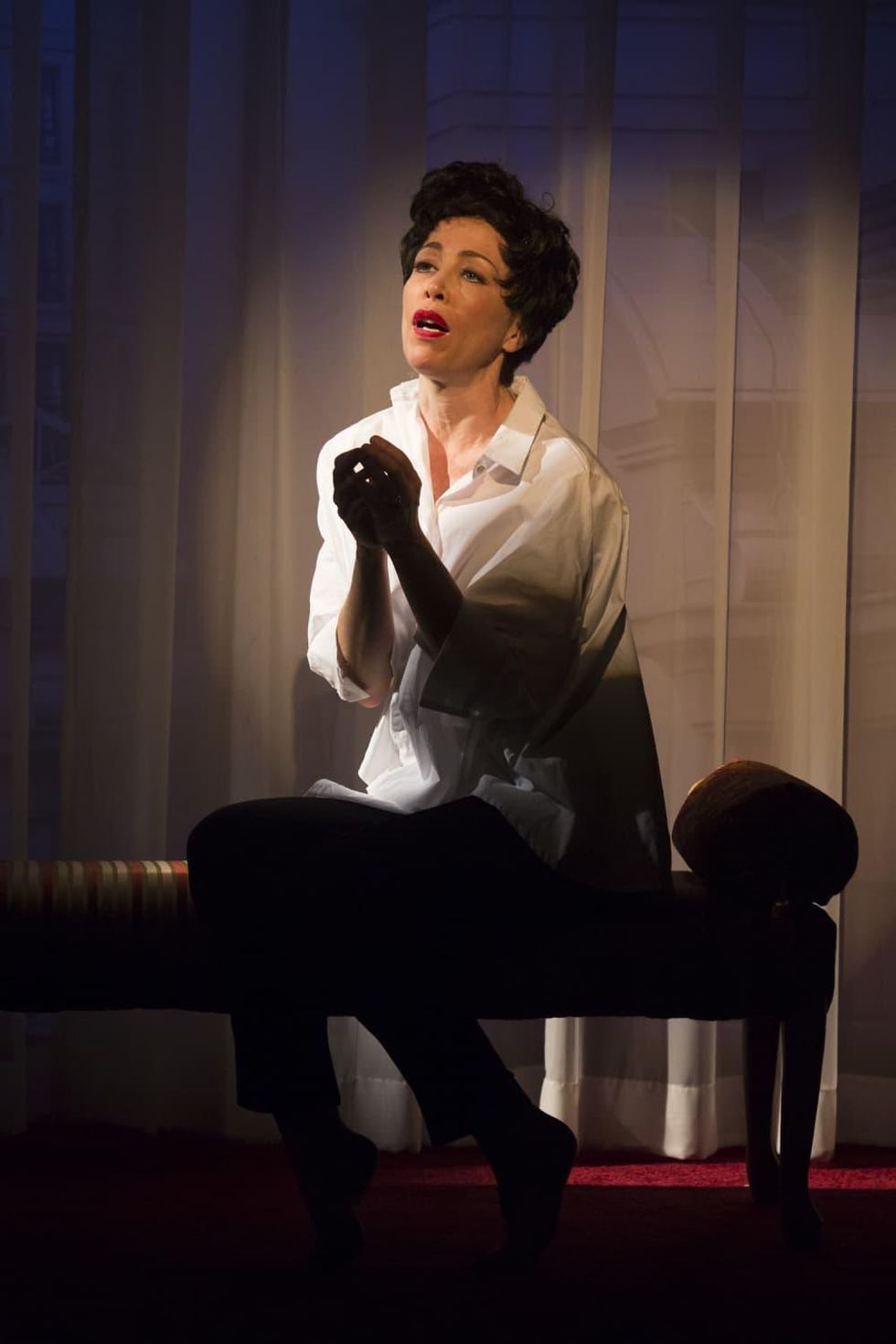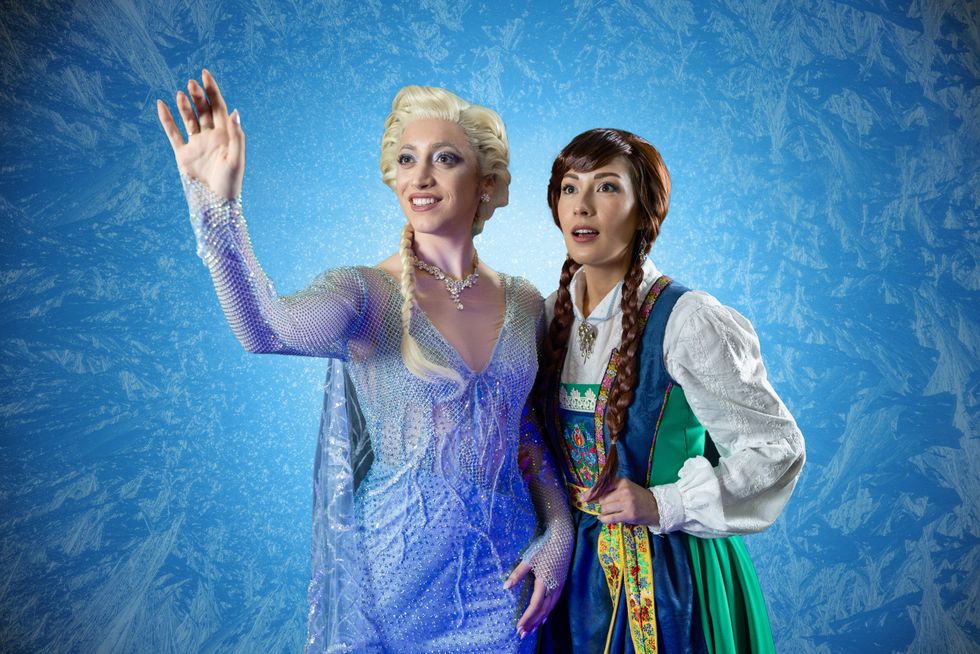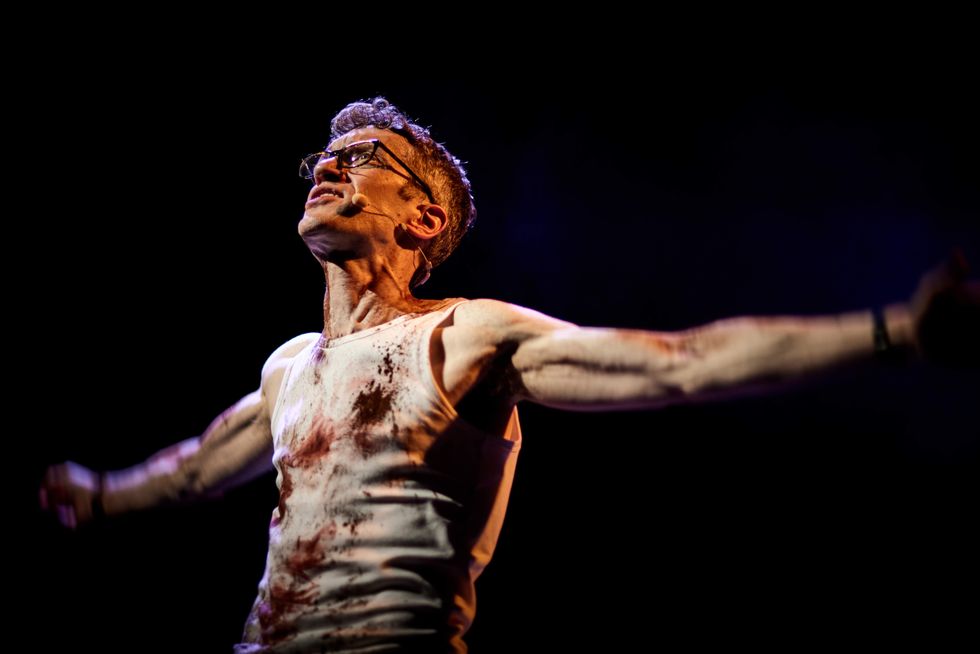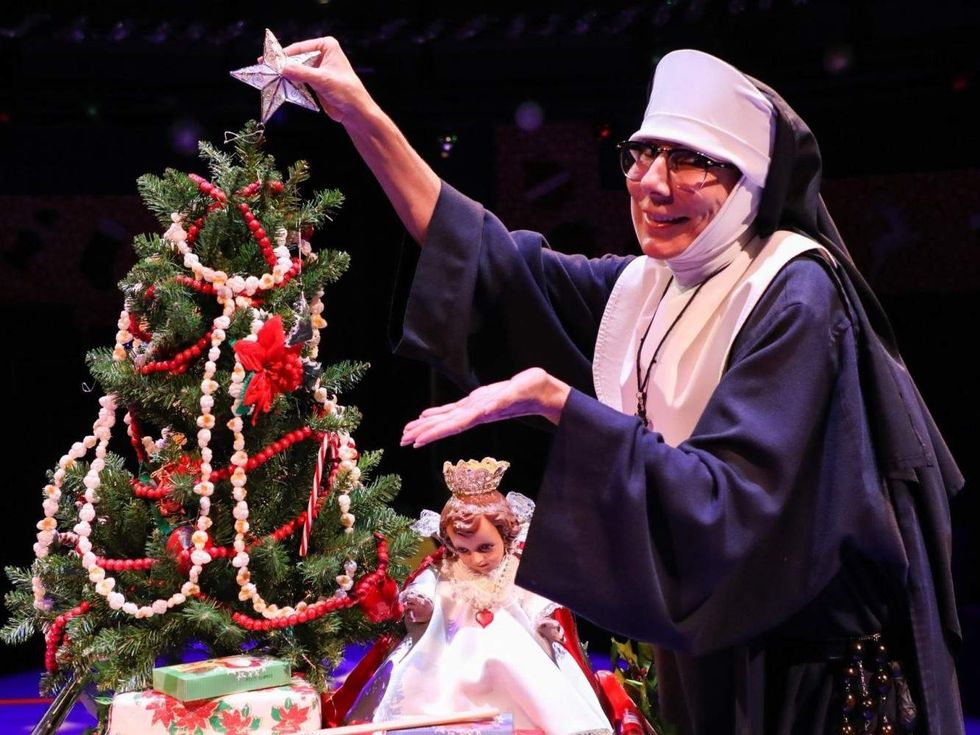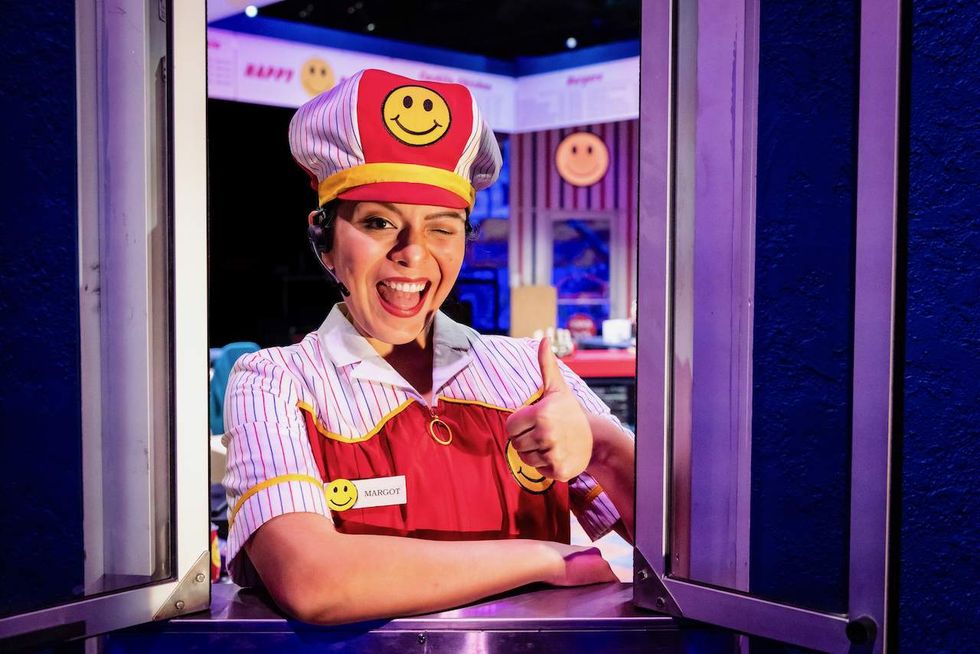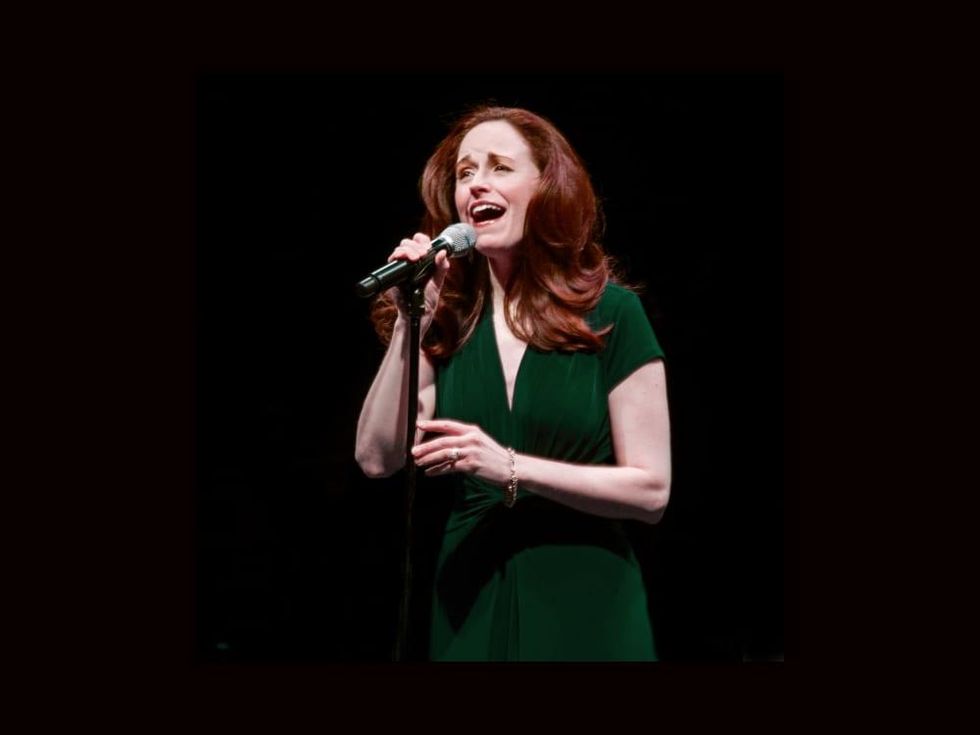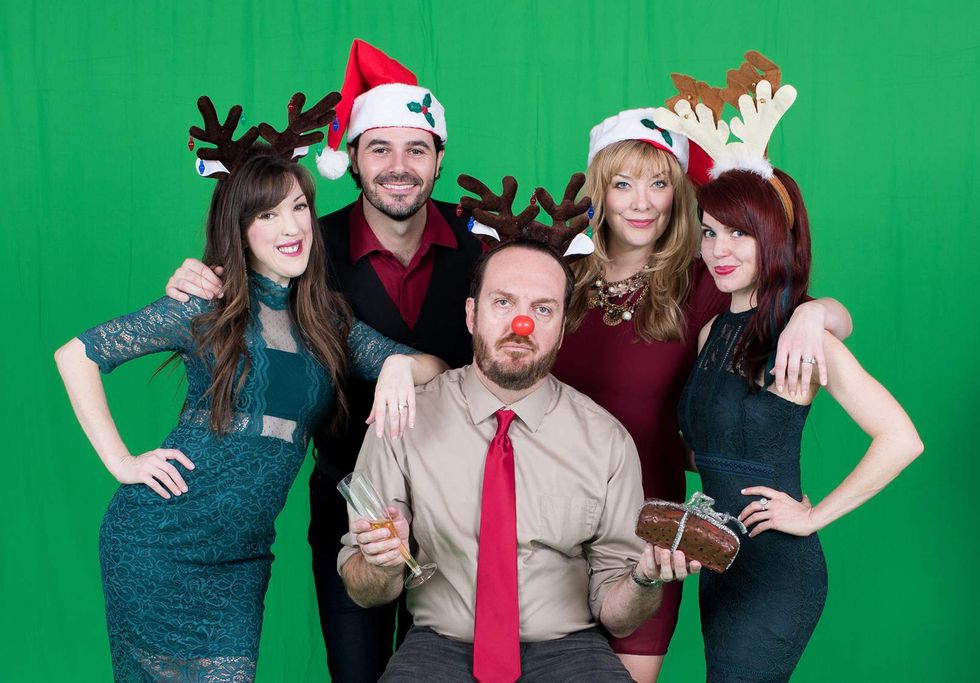Becoming Judy Garland
Becoming Judy Garland: Houston actress transforms into legendary singer with life-altering results
It's been a year since Stages Repertory Theatre artistic director Kenn McLaughlin first approached Carolyn Johnson about portraying the demanding role of Judy Garland in the musical drama, End of the Rainbow. After she went in and sang a couple of Garland songs, McLaughlin said on the spot, "We're doing it," and Johnson's great adventure began.
Through April 10, the Houston actress inhabits Garland on stage in the challenging musical, which covers the last few months of the legendary singer's life as she performs in London.The show has been such a hit with Houston audiences that Saturday matinees have been added throughout the run of the show. (UPDATE: The run of the show has been extended to April 17.)
It's a role that demands Johnson look like Garland (an process that takes a couple of hours before each performance), sound like Garland (in words and song, with such immortal hits as "The Man That Got Away" and "Over the Rainbow"), and behave like Garland (with a mercurial personality that veers from bawdy to tragic in just a few seconds) — all in front of critical audiences who have their very strong memories of the iconic singer, who died of an accidental overdose in the London apartment she shared with the fifth husband in the summer of 1969. She was only 47.
Though Johnson didn't know about the play, she immediately immersed herself in all things Garland after taking on the role. "I went down the rabbit hole doing research, watching her, listening to her, reading about her, everything. And reading this play over and over again. It's been quite a process, coming at it in all different directions. There's Judy Garland herself and there's Judy Garland that's portrayed in this play. It's also about trying to tell this story," Johnson says.
And, she knows, that expectations are great. "You know there are going to be people walking in with their arms crossed, saying 'OK Judy, show me.' I just to keep telling myself I can't worry about that. I have to do my work."
In a wide-ranging interview Johnson, who has appeared in such Stages productions as The Great American Trailer Park Musical and A Picasso, talked about how playing Garland has changed her life.
CultureMap: Has this been the most challenging thing you've done professionally?
Carolyn Johnson: I think so, if only for the reason that I feel a greater responsibility doing a show like this. She's a real person and I want to be true to her as much as I can. From the very beginning, I felt very strongly that I didn't want this to feel like something where we're dragging her through the mud or somehow exposing the seamy underbelly. I hope that people walk away with more empathy for her rather than any judgments because I think it's very easy to judge.
I've heard for years, "Oh, Judy what a hot mess," that kind of flippant attitude. But I think it's so much more to it than that. And the deeper I got into it, the more responsibility I felt to tell the story as truthfully as I could. But in the end it is still fiction, so it is a balancing act for sure.
CM: What about the physical part of it? When you performed at the Stages Gala, I was surprised to see you have long hair because I just assumed you cut your hair for the role.
CJ: It's a good testament to the wig that your thought it was my hair. It's surprising to people, but it isn't too big of a trick putting all that hair up there. There's a skill to it. Pin curls. It's a little time consuming.
CM: How long does it take you to get ready?
CJ: About two hours or so. Every night before the show, we do what we call a "fight call." H.R. Bradford, who plays (Garland's fiance) Mickey, and I have some of the physical struggles (during the play), so we run that every night before the show. It's easy for those things to get sloppy and a little out of control. It's just a chance to keep that in check and fine tune it.
I also do a sound check with the band. My back is always to them during the show so it's fun for me to get to watch them play and interact with them a little bit. We just pick a different number every night and then I head out and keep getting ready. Then I warm up in the dressing room. My makeup takes a while, all of that.
CM: You are a voice coach. (Johnson and her husband, UH School of Theatre & Dance director Jim Johnson, operate a website, accenthelp.com, that helps actors and others perfect accents.) Did that make it easier for you to pick up this accent for Judy?
CJ: I suppose so. I definitely come at it from a different direction than an average person that doesn't do that kind of work. I wasn't sure how much of that technical accent work would work in doing her. So I had to just try it out first and see how far I would go with it. That was kind of a fun challenge.
CM: Did you go around the house speaking as Judy the past year?
CJ: A little bit. Mostly I did it away from people, when I was working on the script. I actually tried to make it a point not to expose my husband and others any more than I needed to. I wanted them to be surprised when they finally saw it.
CM: Do you dream about Judy?
CJ: I can't think of any actual dream I've had at night that's she's been part of, but I feel like she's constantly present in every waking moment. It's so all encompassing right now. It's become very personal to me and I don't know if I anticipated that. It just feels very much like she has become very real to me. Or at least my version of her has become very real to me.
I think that's been reinforced by the fact that I really did not anticipate this response. People keep coming up to me and they're so emotional about the show and it's been overwhelming, gratifying for sure, but definitely overwhelming. It's blindsided me a bit. I didn't realize the extent that people would be affected by it.
CM: Why do you think Judy Garland endures?
CJ: She really had this unique vulnerability on stage and people just really responded to it. And I don't know that people even knew why they responded to her so strongly sometimes. But I think she had a way of really having her heart on her sleeve when she was performing and her connection to her work was so strong.
She was just a uniquely sensitive person and I think her sensitivity to a certain degree was also a bit of her downfall. It set her up for her addictions and a lot of her dysfunction as well. But it was what made her so brilliant onstage. People just felt her emotionally.
And the gay community (connected with her because) she seemed to be this vulnerable person beset by terrible circumstance and she always prevailed. She could have felt all the shame in the world for everything that she went through and was thrown up in her face in the papers over and over again and yet there she was, fabulous as ever onstage as her own amazing unique self.
CM: What have you learned from doing the role?
CJ: I've learned a lot of things about myself, maybe a higher level of trust in myself because every day I kind of dive in and do this thing that is overwhelming and scary. When you do scary things every day you get braver, I find.
I learned so much about my singing voice and my voice in general in trying to do this. I felt, as a singer, it was like taking a master class from her. She's just a genius, really truly. And I just feel lucky to to try to do my part to get to try to do my part in emulating her. And I hope I do it justice.
------------
End of the Rainbow will be performed through April 10 at Stages Repertory Theater. For more information visit www.stagestheatre.com.
